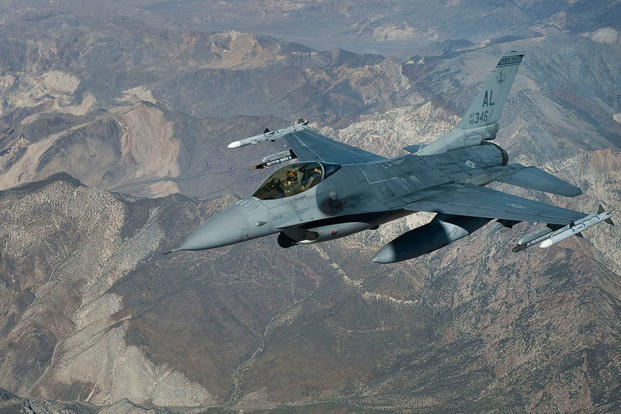Already facing a shortfall of several hundred fighter pilots, the U.S. Air Force is challenged to train a rising number of foreign aviators, the service's top civilian said.
"We have only limited training slots with which to train our pilots, and we're trying to pick that up a notch, so that we train more pilots for ourselves," Air Force Secretary Deborah Lee James said on Wednesday during a briefing with reporters at the Pentagon.
"Trying to fit in [an] ever-increasing number of pilots from overseas locations is a tough proposition," she said. "We're doing the best we … can do."
The Air Force, for example, maintains Euro-NATO Joint Jet Pilot Training program in Sheppard Air Force Base, Texas, where some 7,200 allied pilots have completed training over the last 35 years, according to the base.
Earlier Wednesday, Heidi Grant, the service's deputy undersecretary for international affairs, said she frequently raises the issue of expanding air-to-air training capacity with her overseas counterparts.
"One of our biggest requirements out there is international pilot training," Grant said during a speech at the ComDef conference in Washington, D.C. "It's one area where we're working with industry and coalition partners to find ways to make that available."
What's more, the demand for pilots in both the U.S. and abroad is increasing.
The need for more pilots will be particularly acute in Turkey, where aviators were among the dozens of military officials recently purged from the ranks in the wake of the failed military coup against President Tayyip Erdoğan in July.
Many of those Turkish pilots flying the F-16s "are no longer part of the air force so we see a big capability gap there," Grant said. "So we have that on top of the U.S. Air Force [having] the highest shortage of pilots that we've had in our history."
One "win-win" option, she said, might be to send American pilots to fly international aircraft as part of an effort to train foreign pilots while simultaneously keeping up with their own flight capacity.
The U.S. maintains with Turkey the second-largest International Military Education and Training program, according to the State Department.
James and Air Force Chief of Staff Gen. David Goldfein in July penned in a public plea to Congress for more funding to address a current shortfall of as many as 700 pilots.
They argued the service will need stronger cash bonuses to attract new aviators and to sustain the force. One proposal calls for nearly doubling aviation retention pay for pilots who stay in the service from $25,000 a year to $48,000.
Without the extra money, the leaders say, the shortage could increase to 1,000 pilots by 2022, due in part to competition from the private sector.
"Aside from an airline hiring surge, there are other reasons for the Air Force's pilot shortfall, from dramatically reduced flying hours for the high-end fight as a result of Pentagon budget cuts to a perceived falloff in quality of life when they return from deployments overseas," James and Goldfein said in an Op-Ed in DefenseOne.
"Make no mistake," they said, "this is a quiet crisis that will almost certainly get worse before it gets better."
-- Oriana Pawlyk can be reached at oriana.pawlyk@military.com. Follow her on Twitter at @Oriana0214.



























